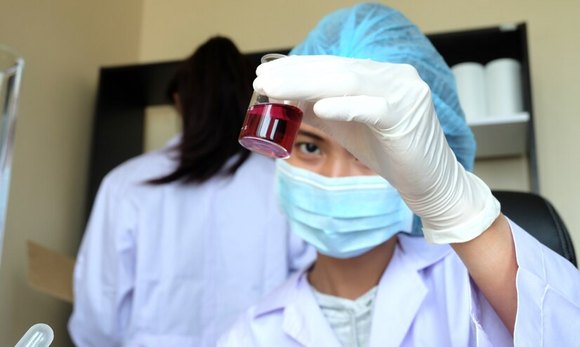
Managing Ross River Virus and Gout: Treatment Options and Recommendations
Ross River virus and gout are two distinct yet common conditions that can significantly impact an individual’s quality of life. Understanding the treatment options and recommendations for managing these conditions is essential for effective symptom relief and overall well-being.
Understanding Ross River Virus
What is Ross River Virus?
Ross River virus, a mosquito-borne illness usually found in Australia and the Pacific Islands, presents itself as a significant health concern in these regions. The virus, transmitted through mosquito bites, can lead to a range of debilitating symptoms, including but not limited to, persistent joint pain, muscle discomfort, elevated body temperature, and persistent fatigue. Individuals afflicted by this viral infection often experience a disruption in their daily activities due to the intensity and persistence of these symptoms, which may last for several weeks or even months.
Diagnosis of Ross River Virus
Diagnosing Ross River virus usually requires a blood test aimed at identifying antibodies generated by the immune system in reaction to the virus. This test helps healthcare professionals confirm the presence of Ross River virus in the body, guiding appropriate treatment and management strategies. Additionally, timely diagnosis enables patients to receive prompt medical care and take necessary precautions to prevent further transmission of the virus.
Common Treatments for Ross River Virus
– Symptomatic Relief: Over-the-counter pain relievers such as ibuprofen and acetaminophen can help alleviate joint pain and fever associated with Ross River virus.
– Rest and Hydration: Adequate rest and hydration are essential for supporting the body’s immune response and promoting recovery from Ross River virus.
– Anti-inflammatory Medications: In some cases, nonsteroidal anti-inflammatory drugs (NSAIDs) may be prescribed to reduce inflammation and alleviate symptoms.
– Preventive Measures: Avoiding mosquito bites by using insect repellent, wearing long-sleeved clothing, and using mosquito nets can help prevent Ross River virus infection.
Understanding Gout
What is Gout?
Gout is a type of inflammatory arthritis marked by abrupt and intense episodes of pain, redness, and swelling primarily affecting joints, with the big toe being a frequent target. These attacks are typically caused by the buildup of uric acid crystals in the joints, leading to inflammation and discomfort.
Diagnosis of Gout
Diagnosing gout involves assessing medical history, conducting a physical examination, and performing laboratory tests to measure uric acid levels in the blood and analyse joint fluid. These diagnostic methods help healthcare professionals accurately identify the presence of gout and differentiate it from other conditions with similar symptoms. Early and precise diagnosis is crucial for initiating appropriate treatment and managing gout effectively.
Common Treatments for Gout
– Medications: Medications such as nonsteroidal anti-inflammatory drugs (NSAIDs), colchicine, and corticosteroids may be prescribed to relieve pain and inflammation during gout attacks.
– Lifestyle Changes: Making dietary modifications, such as reducing intake of purine-rich foods and limiting alcohol consumption, can help prevent gout attacks.
– Medications to Lower Uric Acid Levels: Long-term management of gout may involve medications that lower uric acid levels in the blood, such as allopurinol and febuxostat.
– Weight Management: Maintaining a healthy weight through diet and exercise can help reduce the risk of gout attacks.
Treatment Recommendations and Considerations
Individualised Treatment Plans
Ross River virus treatment and gout treatment should be tailored to the individual patient’s symptoms, medical history, and overall health status.
Lifestyle Modifications
Encouraging lifestyle modifications, including maintaining a healthy diet, staying hydrated, engaging in regular exercise, and managing stress levels, can support overall health and improve outcomes for individuals affected by Ross River virus and gout.
Pain Management Strategies
Implementing pain management strategies, such as using heat or cold therapy, practising relaxation techniques, and considering complementary therapies like acupuncture or massage, can help alleviate discomfort associated with Ross River virus and gout.
Consultation with Healthcare Providers
Patients experiencing symptoms of Ross River virus or gout should seek prompt medical attention and consult with their healthcare providers for proper diagnosis and treatment recommendations.
Importance of Follow-up Care
Regular follow-up appointments with healthcare providers are essential for monitoring symptoms, adjusting treatment plans as needed, and preventing complications associated with Ross River virus and gout.
Conclusion
Effectively managing Ross River virus and gout treatment requires a comprehensive approach that addresses symptoms, reduces inflammation, and promotes overall well-being. By understanding the treatment options and recommendations for these conditions, individuals can take proactive steps to alleviate symptoms and improve their quality of life.
Sydney Unleashed is one of Australia’s premier entertainment publications exploring the latest in lifestyle trends. From Sydney’s finest restaurants, cafes and bars to the hottest in gadgets, products, and home entertainment, Sydney Unleashed is your one-stop lifestyle platform.
